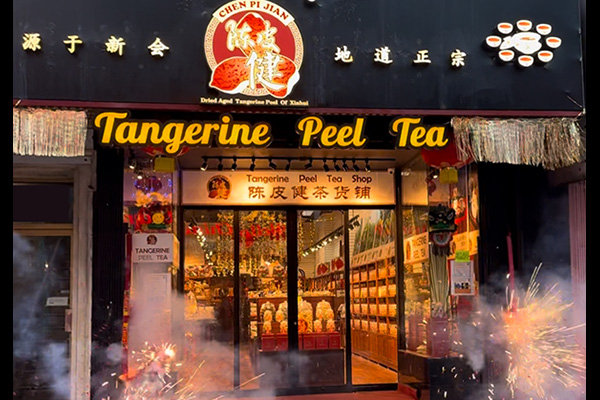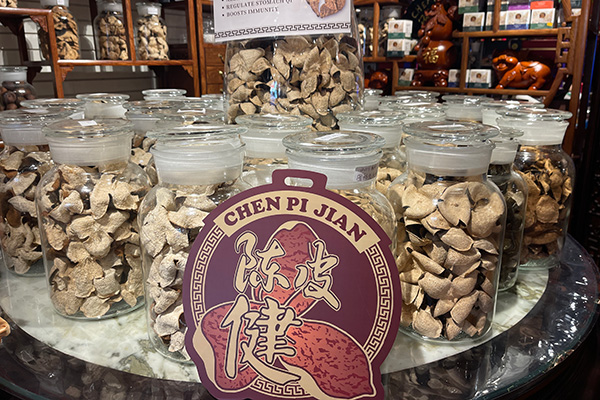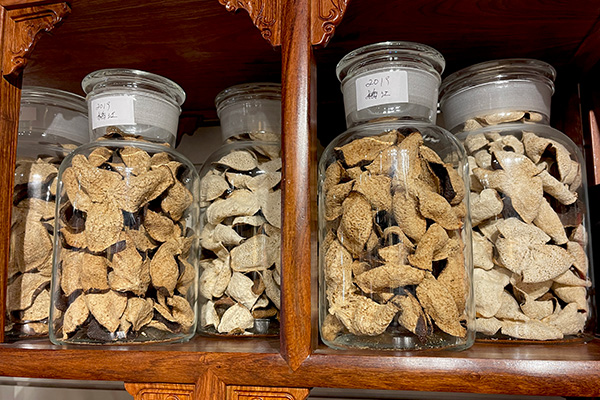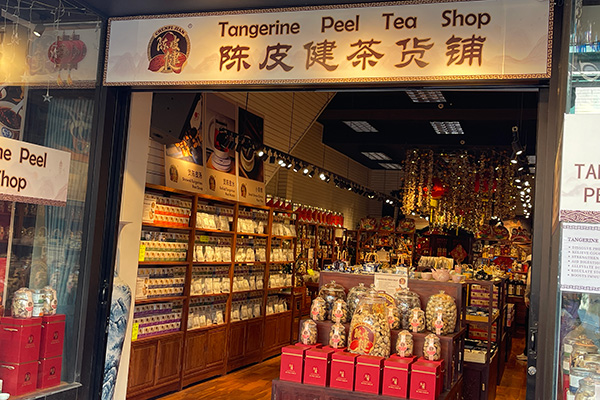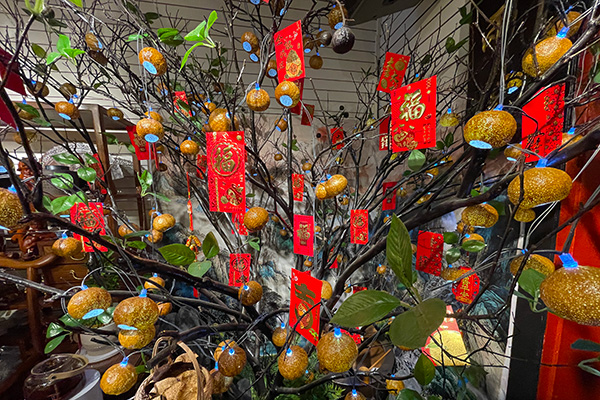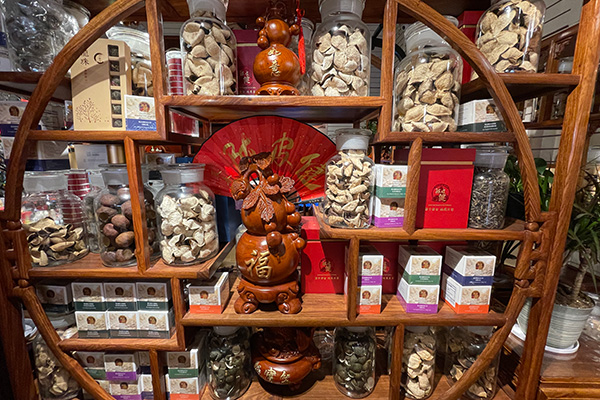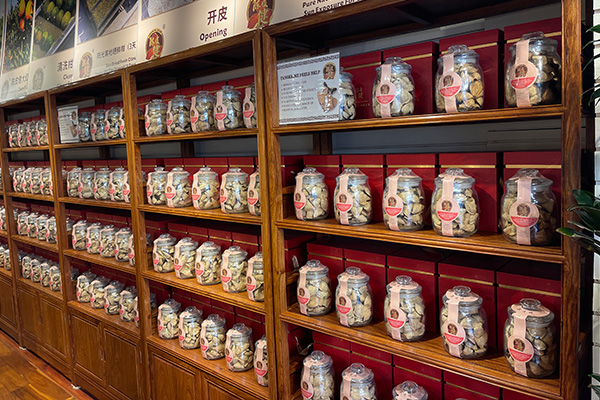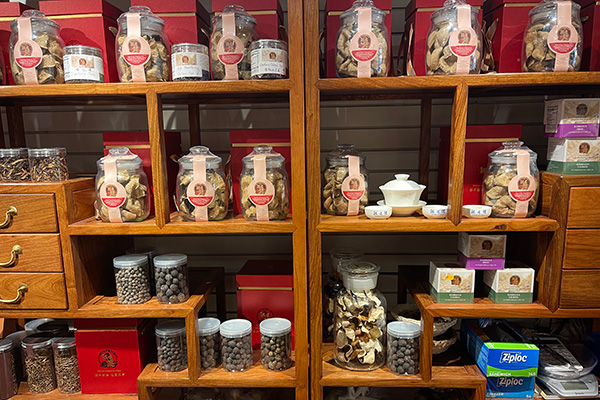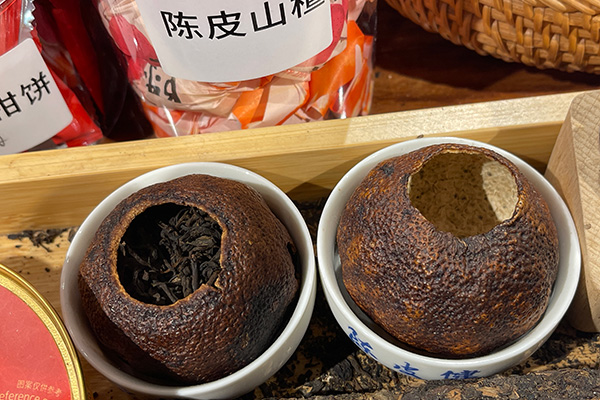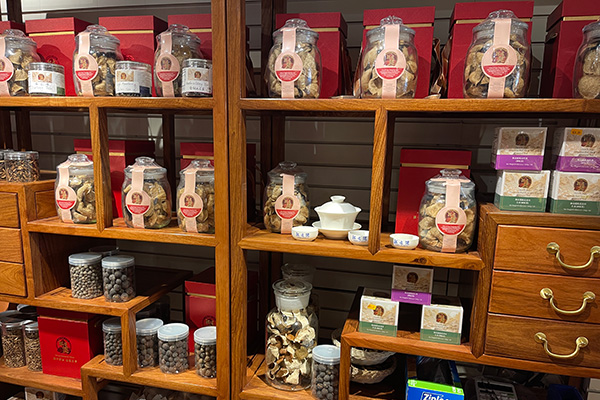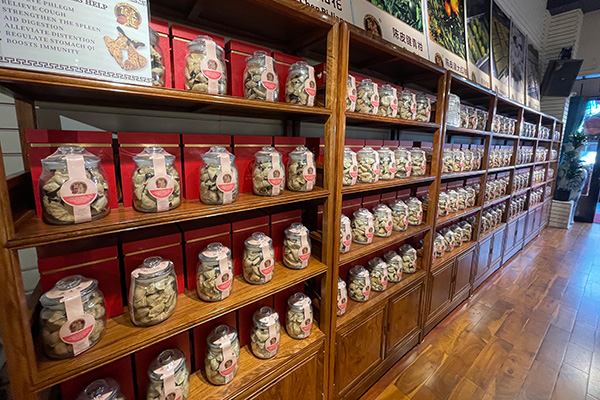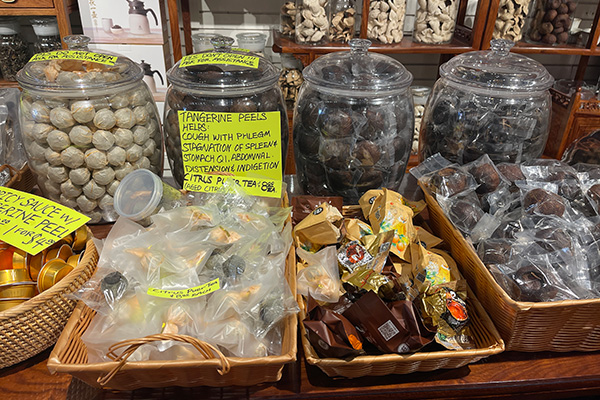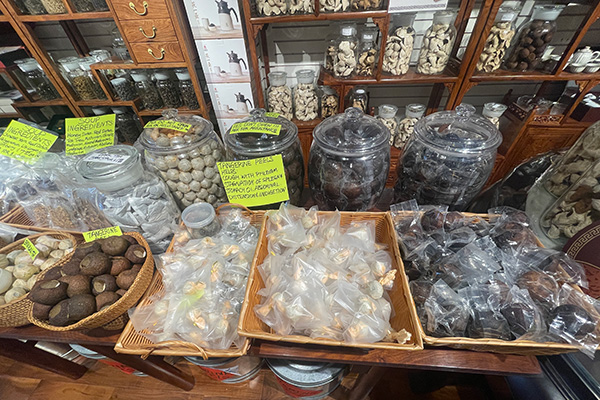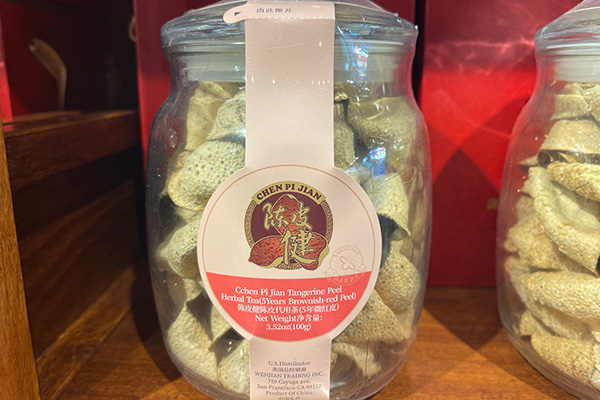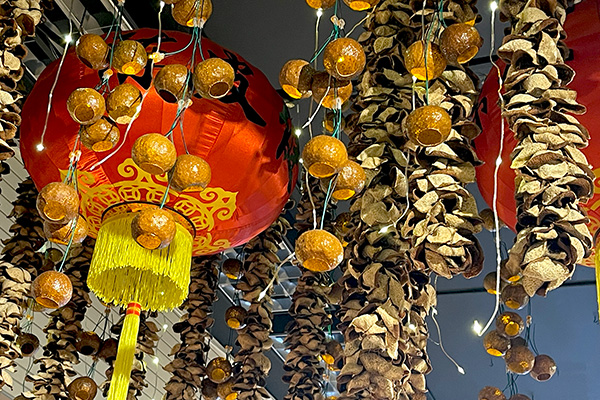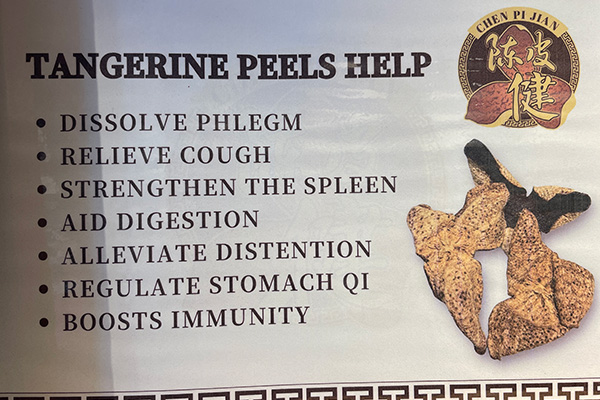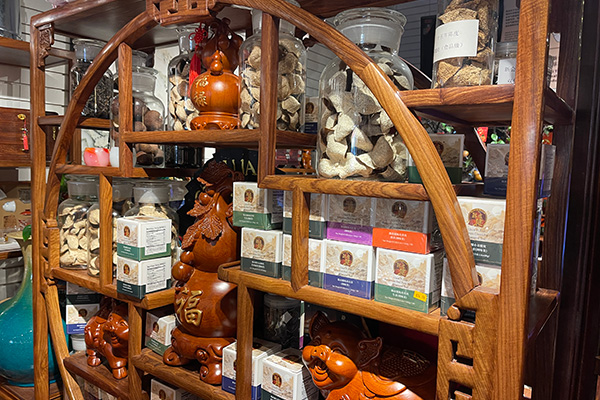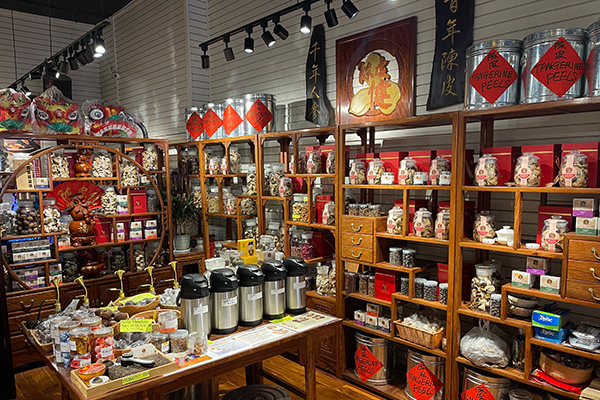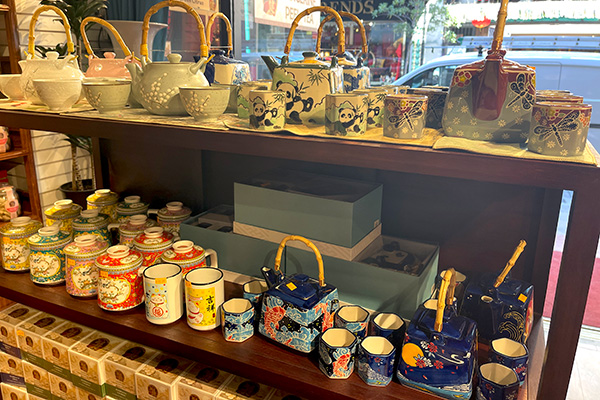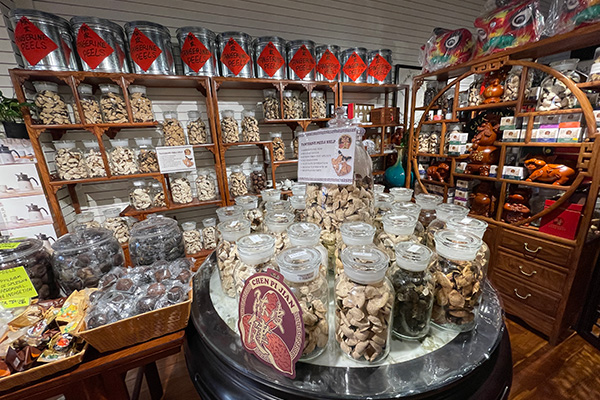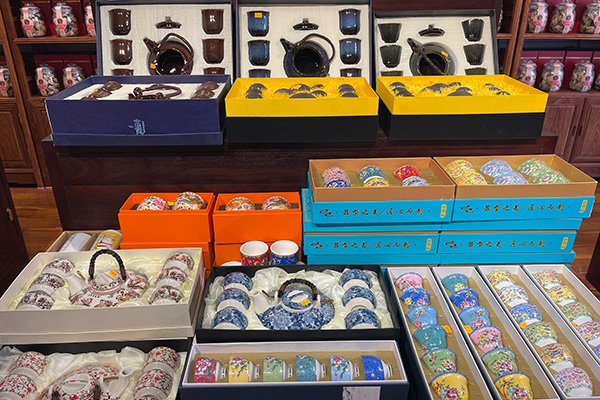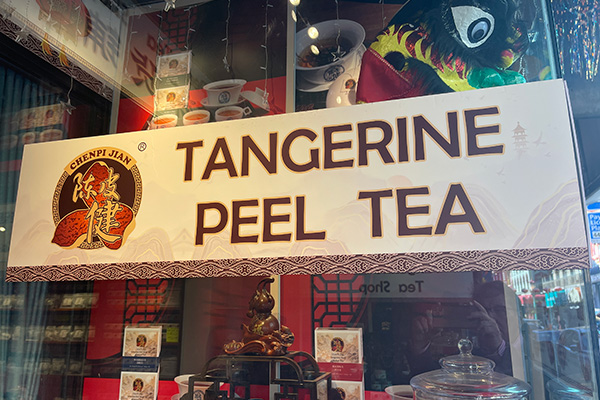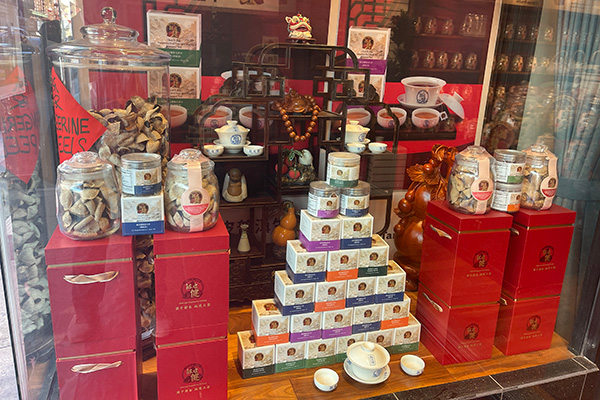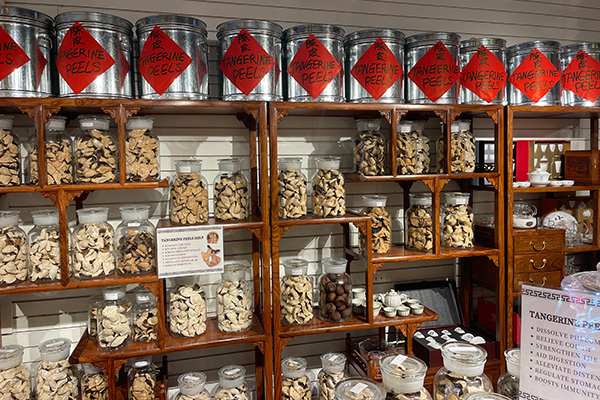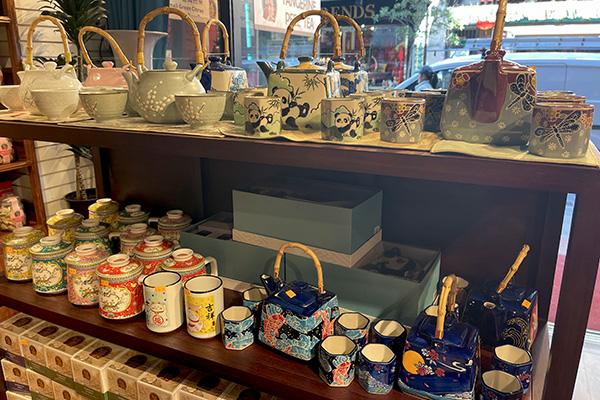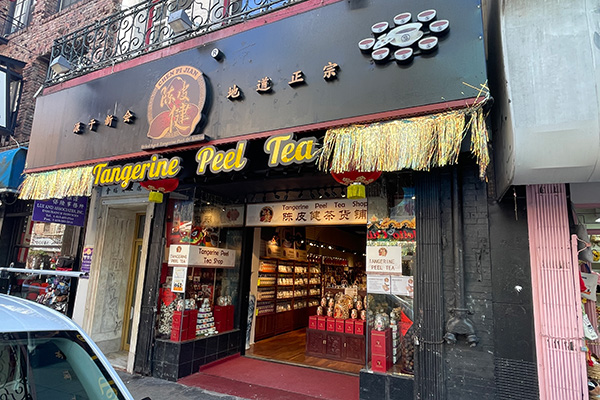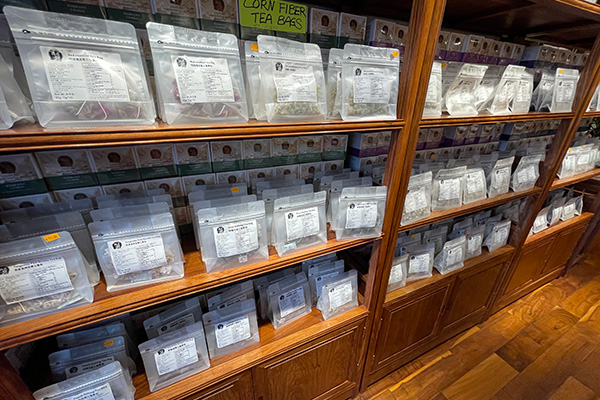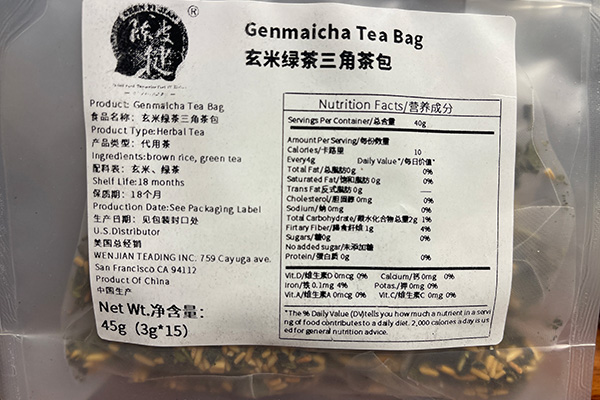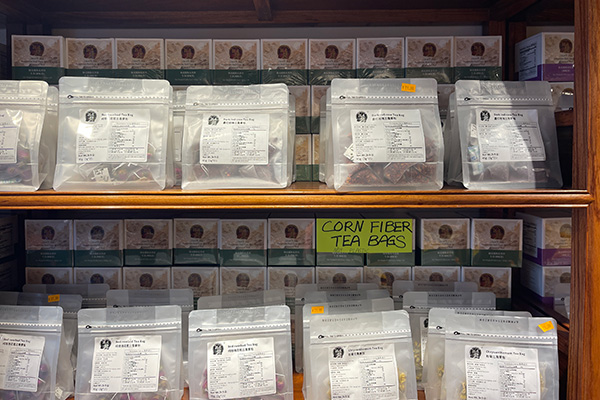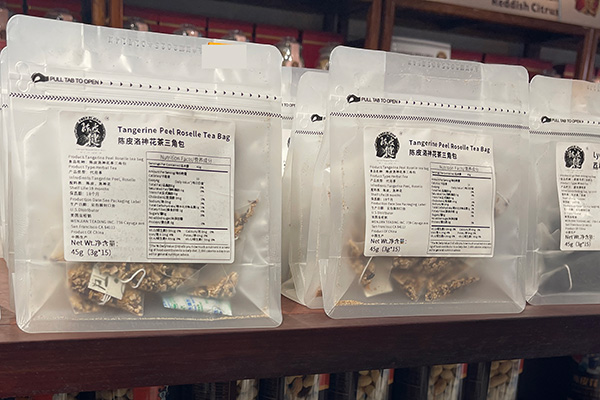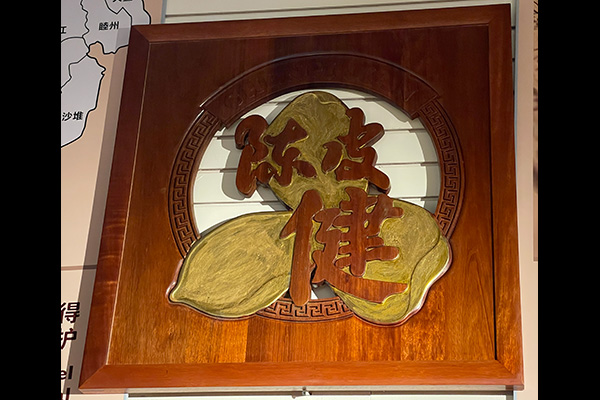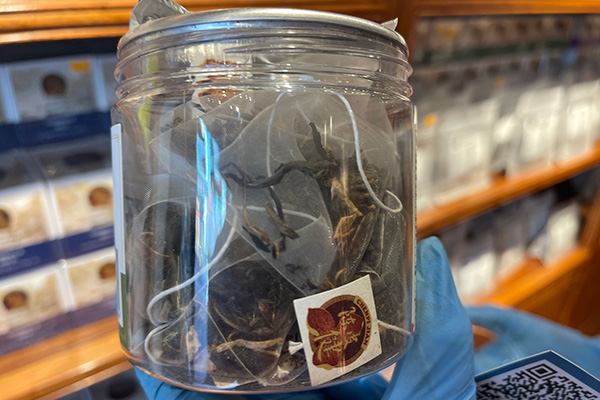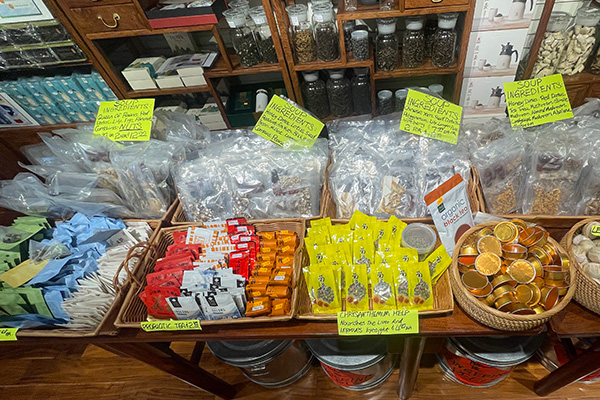retail Category: Tea Shops
Featuring Dried Aged Tangerine Peels from Xinhui, Guangdong, a region which produces the highest quality Chenpi.
Chenpi, a Chinese herb ingredient in traditional Chinese medicine, believed to offer health benefits.
Tea sampling available .. head toward the back of the store.
李时珍:《本草纲目》
李时珍在他著名的《本草纲目》里,对陈皮的阐述是这样的:
(陈皮)苦能泄能燥、辛能散、温能和。其治百病,总是取其理气燥湿之功。同补药则补,同冯药则污,同升药则升,同降药则降。脾乃元气之母,肺乃摄气之仓,故橘皮为二经气分之药,但随所配而补污升降也。浴古老人云:陈皮、枳壳利气而痰自下,盖此义也。同杏仁治肠胃气秘,同桃仁治大肠血秘,皆取其通滞也。During the Northern Song Dynasty, Fan Zhongyan brewed Chenpi liquor as his mother
Fan Zhongyan, in the first year of the Tian Sheng era, served as the supervisor of the salt warehouse in Dongtal.
Coincidentally, Fan’s mother was weak and sickly, but she had a strange habit and disliked taking decoctions. Filial Fan Zhongyan was at a loss and worried, seeking medical help everywhere in search of a cure. One day, a local doctor suggested to Fan Zhongyan to make medicinal wine by mixing glutinous rice with tangerine peel. Fan Mu’s drinking has shown remarkable effects. Because it was stored in jars after brewing, it was named “Chenmash Wine”.
Due to its homophonic sound and ingredients containing Chenpi, it was called “Chenpi Wine” and has since been passed down among the people. Qu rice is brewed with a fresh spring breeze, and the glutinous liquid spreads into a fragrant bottle. Chen Pi wine, due to its effects of nourishing qi and blood, dispelling wind and dispelling cold, relaxing tendons and activating collaterals, regulating qi and appetizing, has become a table wine for the people of Dongtai.
Its brewing technology is also listed as an intangible cultural heritage.No Records Found
Sorry, no records were found. Please adjust your search criteria and try again.
Google Map Not Loaded
Sorry, unable to load Google Maps API.

